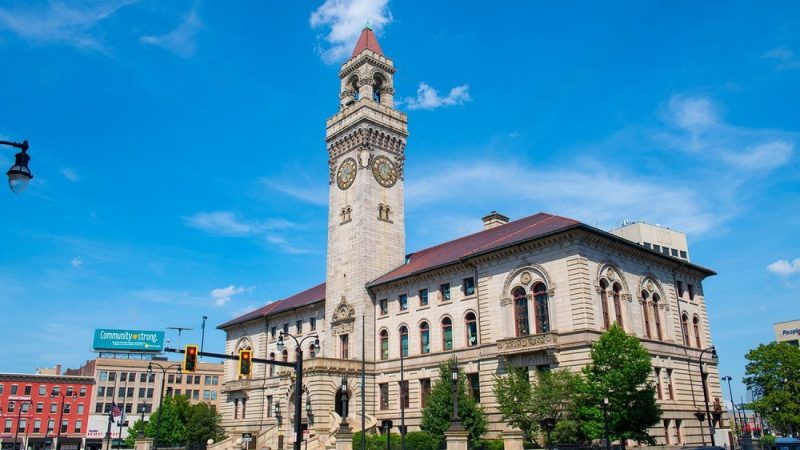: Unanswered Questions: The Delay in Justice for Aiden’s Wrongful Death

In a society that places a premium on justice and accountability, cases involving the wrongful death of individuals at the hands of law enforcement raise critical questions about the state of our legal system. One such case that has garnered national attention is the tragic death of Aiden, a young individual whose life was cut short due to the actions of police officers. Despite the glaring evidence pointing towards wrongful conduct, the delay in holding the responsible officers accountable has left many bewildered. This article delves into the various factors contributing to the prolonged wait for justice in Aiden’s case.
The Incident
Aiden’s story begins on a fateful night when routine police intervention took a devastating turn. Responding to a call, officers encountered Aiden, a young person with no criminal record, who posed no immediate threat. However, a series of misjudgments and excessive use of force resulted in Aiden losing their life, leaving behind a grieving family and a community demanding answers. Eyewitnesses, video footage, and other pieces of evidence suggest that the actions of the involved officers were unwarranted, leading to widespread outrage and protests.
Public Outcry
The immediate aftermath of Aiden’s death saw a surge of public outcry, with citizens demanding justice and accountability. Social media platforms became catalysts for activism, with hashtags and campaigns demanding answers and the prosecution of the responsible officers trending globally. Communities rallied together to protest against police brutality and the apparent lack of consequences for those entrusted with upholding the law. Despite the widespread support for justice, the legal process has been slow-moving, raising concerns about the effectiveness of the system in addressing cases of police misconduct.
Investigation Challenges
One of the key factors contributing to the delay in justice for Aiden is the complexity of the investigation. Unraveling the intricacies of a police-involved incident demands a thorough examination of evidence, testimonies, and the actions leading up to the tragic event. Additionally, the investigation must navigate the challenges of potential bias within law enforcement agencies, making it crucial to ensure an impartial and transparent process. The need for a comprehensive and unbiased investigation, while vital for justice, often results in a protracted timeline, leaving both the victim’s family and the community in a state of limbo.
Legal Protections and Immunities
Another hurdle hindering the expeditious resolution of Aiden’s case lies in the legal protections and immunities afforded to law enforcement officers. Qualified immunity, a legal doctrine shielding government officials from being held personally liable for actions taken in the course of their duties, has been a point of contention in cases of police misconduct. Critics argue that such protections create a barrier to accountability, allowing officers to act with impunity. The debate surrounding qualified immunity has prompted calls for legislative reform, but the existing legal framework continues to impede the swift resolution of cases like Aiden’s.
Prosecutorial Discretion
The decision-making power vested in prosecutors plays a pivotal role in determining whether charges will be filed against the involved officers. Prosecutorial discretion, while essential for maintaining the integrity of the legal system, can be a double-edged sword. The careful balancing act of weighing evidence, public sentiment, and potential repercussions can lead to prolonged decision-making processes. The fear of losing high-profile cases or facing backlash from law enforcement agencies may influence prosecutors to proceed cautiously, contributing to delays in seeking justice for victims like Aiden.
Police Union Influence
The influence of police unions in shaping the narrative surrounding officer conduct and disciplinary actions adds another layer of complexity to cases involving police misconduct. These unions often work tirelessly to protect their members, sometimes at the expense of justice and accountability. Negotiations, appeals, and legal challenges initiated by police unions can significantly extend the time it takes for cases to reach resolution. The formidable legal and financial resources at their disposal create additional obstacles for those seeking justice for victims of police violence.
Public Perception and Backlash
The sensitive nature of cases involving police officers can lead to a reluctance to act swiftly, driven by concerns over potential public backlash. The fear of exacerbating tensions within communities or sparking protests may influence authorities to tread cautiously. Striking a balance between the public’s demand for justice and the need to maintain order presents a delicate challenge, further prolonging the process of holding the responsible officers accountable.
Conclusion
The delayed quest for justice in Aiden’s case underscores the systemic challenges embedded within the legal and law enforcement frameworks. The intricate interplay of investigation complexities, legal protections, prosecutorial discretion, police union influence, and public perception creates a labyrinthine path to accountability. As communities continue to demand justice for those wrongfully killed by law enforcement, addressing these systemic issues becomes imperative. Only through a comprehensive and transparent approach can we hope to dismantle the barriers preventing timely justice and work towards a legal system that holds all accountable, regardless of their position of authority.
-
What happened to Aiden, and why is there a delay in justice?
Aiden was tragically killed in an incident involving the police. The delay in justice is attributed to a combination of factors, including the complexity of the investigation, legal protections for officers, prosecutorial discretion, and the influence of police unions.
-
What is the status of the investigation into Aiden’s death?
The investigation is ongoing, with authorities working to gather all relevant evidence. The complexity of the case, including the need for a thorough and unbiased examination, contributes to the extended duration of the investigation.
-
Are there any eyewitness accounts or video evidence of the incident?
Yes, there are eyewitness accounts and video footage that suggest the actions of the involved officers were unwarranted. However, the legal process requires a comprehensive examination of all available evidence before reaching conclusions.
-
What legal protections do the police officers have that might be contributing to the delay in justice?
Qualified immunity, a legal doctrine shielding government officials from personal liability, including police officers, is a significant factor. Critics argue that such protections hinder accountability and reform efforts, leading to prolonged legal processes.
-
How does prosecutorial discretion affect the case?
Prosecutorial discretion allows prosecutors to decide whether to file charges. This decision-making process, while essential for maintaining a fair legal system, can be time-consuming as prosecutors weigh evidence, public sentiment, and potential repercussions.
-
Do police unions play a role in the delay of justice?
Yes, police unions can influence the legal process by negotiating on behalf of officers, initiating appeals, and challenging decisions. Their resources and efforts sometimes contribute to delays in resolving cases of police misconduct.
-
Is there any legislative reform being considered to address delays in cases like Aiden’s?
The debate surrounding qualified immunity has sparked discussions about legislative reforms. Advocates argue that changes to existing laws could streamline the legal process and enhance accountability for law enforcement officers.
-
How does public perception impact the resolution of cases involving police officers?
Public perception is a crucial factor. Authorities may be cautious about swift action due to concerns about potential public backlash and social unrest. Striking a balance between justice and maintaining order becomes challenging in high-profile cases.
-
What can the community do to support justice for Aiden?
Community involvement is vital. Peaceful protests, raising awareness on social media, and advocating for systemic reforms can apply pressure for a timely and just resolution. Engaging with local representatives and participating in discussions on police reform can also contribute to change.
-
Are there any precedent cases where justice was delayed, but eventually served in similar situations?
Unfortunately, there have been instances where justice was delayed but eventually served. The legal process can be slow, but persistent community activism, media attention, and legal reforms have, in some cases, led to accountability for wrongful actions by law enforcement.
These FAQs aim to provide a comprehensive overview of the complexities surrounding the delay in justice for Aiden’s case and shed light on the various factors contributing to the prolonged legal process.






